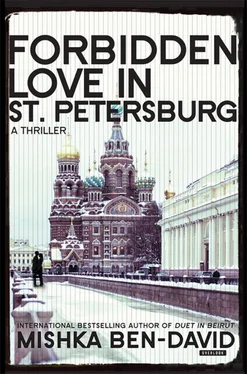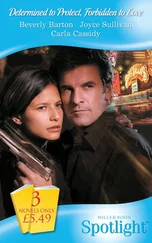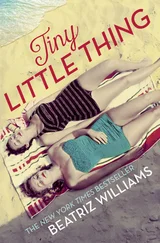Get going, Yogev, Udi said affectionately.
I picked up the oiled weapon, disassembled it, wiped the excess oil, cleaned the barrel with a pull-through brush, and reassembled it. I cocked and released the hammer a few times. The piston moved smoothly. I then cleaned the magazines, wiped the silencer, and attached it to the barrel.
I’ll take just one magazine, I said. Should be enough bullets.
When it comes to shooting, you’re the boss, Udi said, giving me a feeling I would rather not have had. I had no desire to be proud of what I was about to do or of my status.
The skipper offered me a number of options for concealing the weapon. I chose a simple, soft, black-leather shoulder bag with a zipped front pocket. That way I’d be able to put the pistol inside, sling it over my shoulder, and just slip my hand in and shoot through the leather. Udi and Levanon each took a small Beretta.
Once we’d finished dealing with the weapons, our host invited us up on deck for light refreshments. We sat on plastic armchairs and put the finishing touches to the plan: Udi and Motti would be in the car close to the hotel’s entrance in case I ran into trouble and required rapid armed assistance to deal with the possible intervention of the Syrian’s security personnel. Micah would be in the second car at the top of MacDonnell Road–the one-way street on which the hotel was located–ready to seal it off if a police car happened to come by. Of all of us, this likeable, portly, Humint expert, was best suited to keeping a bunch of cops distracted with his array of adventure stories. Levanon would come into the hotel with me pretending to be a friend who was booked onto a late flight and was spending time with me before he had to leave for the airport. I’d also tell the hotel people that my flight had been brought forward and I’d be checking out in the middle of the night.
Levanon was to be my number two in the operation, making sure the target’s door was professionally unlocked and covering me from the doorway in case someone unexpectedly appeared on the scene.
The plan was to fire three bullets at Zaif’s head. If everything went according to plan, we’d also search the room for documents. The hit was set for 2 a.m.
Now let’s work on the getaway, Udi said, and we started planning our withdrawal. After arranging the details of the drive from the hotel and the return of the weapons, we all booked flights leaving Hong Kong between 4 and 7 a.m. If everything went smoothly, by the time Zaif’s body was discovered we’d be in the air on our way home.
At this stage of the plan I suddenly felt icy calm and focused. There wasn’t a trace of my earlier tense excitement. I was entirely ready for action. I recalled that I’d felt exactly the same before every big operation in the army. Anxiety, even fear, during the preparations, and the moment that everything was ready and we were about to set off–absolute peace of mind, alertness, and focus.
The team dispersed to check out of their hotels. I entered mine with Levanon, who had a small suitcase with him. In the event, the explanation we had prepared wasn’t needed. The reception clerk looked up from her computer, welcomed me with a nod, and resumed her work. Half an hour later when I called to say I’d be checking out that night, she asked no questions.
At about midnight Levanon and I finished cleaning my room: we assembled anything I might have touched, washed the glasses clean of possible fingerprints, scrubbed the sink and bath tub so that not even a strand of hair was left, wiped the taps, and stuffed the towels I’d used earlier in the day along with the pillowcase–which certainly bore traces of my DNA–into my bag.
And we’re surprised when they say that Israelis steal towels, Levanon smiled. I wasn’t in the mood for jokes, but was glad that this amiable, cool-headed, and pleasant-looking guy was at my side. We practised on my door chain with the device he’d brought–a seemingly humble pair of scissors, that were, in fact, a highly effective pair of forged steel wire cutters.
The two hours now left to us until 2 a.m. were probably the longest of my life, longer than any two hours lying in ambush in Lebanon or being on night watch in some Far Eastern country.
Just before 2 a.m., Levanon and I again went over our every planned move from the moment we left my room until we were back in it, had picked up our stuff and were on our way downstairs where Udi was due to take back command of the operation. We again tested our communications system–Udi, Levanon, and I had our cell phones open in conference call mode–once more inspected our weapons, and left the room.
To avoid the elevators suddenly moving up and down in the middle of the night, especially from my floor to the target’s, I decided we’d use the internal emergency staircase. By the time we’d climbed the four floors, I was breathless. It took a moment or so for me to recover, then I signalled to Levanon, and the two of us moved silently towards room 2012.
As we trod cautiously along the carpeted hallway, the floorboards creaked a bit, making me think that the noise might wake up the sleeping security men. I decided to stay put for thirty seconds or so outside the target’s door. But all was quiet in the hallway and Levanon urged me on.
While he was busy picking the lock, I kept a watchful eye on both ends of the corridor and had my hand firmly gripping the butt of the pistol concealed in the shoulder bag. A few seconds later the door opened with just the slightest press of the handle. There was a light on in the bathroom and the security chain was clearly visible. A faint click could be heard as Levanon applied the wire cutters to snap the chain. Then, with a gracious gesture of the hand, he ushered me in. If our activity had woken Zaif, now was the time for him to spray us with bullets, call his security people, or try to escape. But there was complete silence.
I edged further in. Levanon, one hand on the Beretta in his jacket pocket, lingered by the door keeping watch on the hallway. I tiptoed past the bathroom, illuminated briefly by the light, and then into the room itself. There was a slight movement from the bed that momentarily immobilized me. Zaif rolled over. The light from the bathroom made it easy to identify him. And there was no need to fire from the shoulder bag. I took out the pistol, stood by the side of the bed, placed the muzzle close to the nape of his neck and turned my head away as I fired.
Even though the silencer was particularly big, the shot sounded like a handclap, startling me. Almost without aiming, I immediately fired the second shot and left quickly with the gun in my hand, convinced that Zaif’s security men were about to rush in.
Levanon looked surprised when I appeared with the gun still in my hand, but didn’t say a word. He signalled me to wait, went into the room, from where the dull sound of another shot was heard. He emerged a moment later with Zaif’s file of documents. We pressed the interior lock button, closed the door, and walked quickly towards the stairwell, our guns still drawn in case any security people appeared. I was punch drunk, operating like an automaton, not thinking, not feeling. The almost total darkness of Zaif’s room had also saved me from seeing things better not seen. It was Levanon who’d kept to the original plan; three shots to the head and the documents file which turned out to be a very big catch indeed.
When we reached the sixteenth floor I put the pistol back into the bag. The hallway was empty. We went into my room, I washed my face and Levanon told me to pack the hand towel as well, an instruction that produced a little smile. Then he asked me gently if I had purposely not fired the third bullet. He was still alive when I went in, he told me.
Читать дальше












